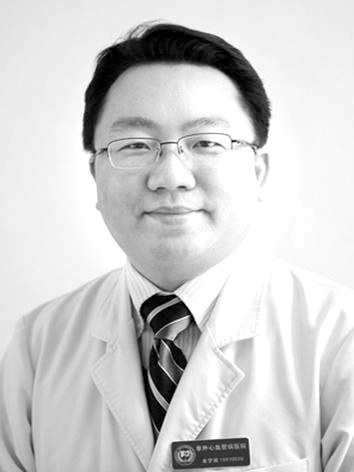
Expert introduction:
Yu Mengyue, chief physician, professor and doctoral supervisor of National Cardiovascular Center and Fuwai Hospital of China Academy of Medical Sciences, member of China Clinical Epidemiology Society and young member of China Public Health Society.
In recent years, the prevalence of cardiovascular and cerebrovascular diseases is rising, and the incidence of sudden death is getting higher and higher. Many public figures, such as actors Gao Xiumin, Gu Yue and Ma Ji, died of sudden death. The main cause of sudden death is sudden cardiac death, including cardiac arrest or acute heart failure caused by coronary heart disease or other malignant arrhythmia. Among them, sudden death caused by coronary heart disease can account for 80%. In addition, some cerebrovascular diseases can also cause sudden death. Although the sudden death happened suddenly, there are actually traces to follow. People at high risk of cardiovascular and cerebrovascular diseases should pay special attention to several abnormal manifestations to prevent sudden death.
1. Recently appeared or aggravated chest tightness.
If you suddenly feel chest tightness after exercise in the near future, rest for a while can relieve it. This phenomenon suggests that you may have coronary heart disease. The sudden symptoms indicate that the atherosclerotic plaque in the coronary artery is still unstable and may rupture at any time, leading to acute myocardial infarction. If you have chest tightness symptoms occasionally in the past, the symptoms will become more frequent and more serious in the near future. It also shows that the plaques that were previously stable are now slightly damaged and will develop into large ones at any time, leading to the occurrence of acute myocardial infarction. In this case, you should go to the hospital as soon as possible and have medication or surgery.
2. flustered.
Palpitation is often a subjective feeling of increased heart rate. Irregular increase in heart rate is usually the result of tachyarrhythmia. Most arrhythmias are less dangerous and will not cause sudden death, but if they are frequent ventricular arrhythmias, there is a risk of developing ventricular fibrillation. In addition, palpitation in many elderly people is caused by atrial fibrillation. If atrial fibrillation is accompanied by heart conduction diseases, it is easy to progress to ventricular fibrillation. After a ventricular fibrillation attack, it can lead to death within a few minutes. Therefore, frequent palpitation attacks should also be treated in time.
3. The heartbeat is too slow.
The beating of the heart is initiated by specific pacing cells. The poor function of pacing cells will slow down the beating rate of the heart and even lead to cardiac arrest in severe cases. Pacing cell function will gradually deteriorate with age. With the continuous improvement of life expectancy in China, the proportion of elderly people over 80 years old is also increasing, and the pacemaker cell function of this group will gradually deteriorate and the heart rate will slow down. Older people usually have less activity, and a slower heart rate can also maintain normal life, so it is often ignored. The elderly should regularly monitor blood pressure and heart rate. If the heart rate is less than 50 times and the blood pressure becomes low, it is easy to have long-term cardiac arrest and lead to sudden death.
4. syncope.
Syncope is an important precursor of sudden death, and most syncope is caused by the sudden slowdown or stop of heartbeat, resulting in insufficient blood supply to the brain. Common causes include sinus node disease, atrioventricular block, and hypertonia of vagus nerve. Sometimes syncope can recover after a few seconds, and if it can’t recover, it will cause sudden death. Therefore, we should be very vigilant after unexplained syncope, find out the cause as soon as possible, and prevent the next syncope or even sudden death.
5. Unexplained fatigue.
Sudden death is not a patent for the elderly, but also happens to young people. It is normal for many young people to suffer from heavy work pressure and fatigue. However, if there is unexplained fatigue and fatigue, or accompanied by chest tightness and edema, you should be alert to the occurrence of sudden death, which may be caused by myocarditis or cardiomyopathy. Myocarditis is more common among young people, usually after 1~2 weeks of catching a cold, with symptoms such as fatigue, chest tightness and fatigue, which can easily cause acute heart failure. In this case, heavy physical activity and bed rest should be strictly prohibited. Cardiomyopathy is mostly hereditary disease, which is not easy to detect in the early stage. When symptoms appear, irreversible changes in myocardial structure have occurred, such as cardiac enlargement and myocardial hypertrophy, which are very likely to lead to sudden death. Therefore, when there is unexplained fatigue and chest tightness, we should be highly alert to myocarditis and cardiomyopathy.
6. Black eyes and numbness of limbs.
Stroke is also an important cause of sudden death. Some strokes have a sudden onset, and limb paralysis and high blood pressure will occur within a few minutes. In this case, patients can save their lives if they see a doctor in time. However, some strokes have a slow onset and only mild symptoms in the early stage, and patients don’t care. Once it progresses, it may lead to sudden death, so you need to pay more attention. Especially in patients with hypertension, coronary heart disease or atrial fibrillation, the incidence of stroke is several times higher than that of the general population. If you can’t see things on one side, your limbs are numb and weak, or you walk unsteadily and feel like stepping on cotton, you should be alert to the occurrence of stroke and see a doctor in time. Early identification can often achieve better curative effect.
In order to find the above-mentioned precursors of sudden death, we need to be alert to physical discomfort at all times, respond quickly when things happen, and seek medical advice in time. ▲